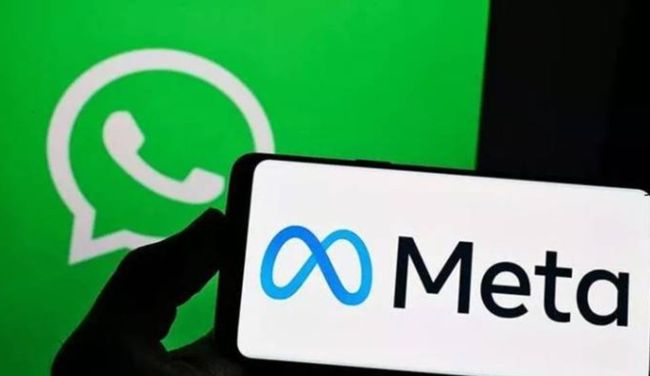What next as WhatsApp, Meta battle $220m fine by FCCPC Tribunal?

In a legal development that could redefine corporate accountability in Nigeria’s digital economy, the Federal Competition and Consumer Protection Tribunal on Friday upheld a hefty $220 million fine against WhatsApp and its parent company, Meta Platforms Inc., for alleged discriminatory data practices. An additional $35,000 was awarded to the Federal Competition and Consumer Protection Commission (FCCPC) for investigative costs.
In swift response on Saturday, WhatsApp rejected the ruling, vowing to file an urgent application to stay execution and appeal the Tribunal’s decision.
“We are urgently applying to stay the order and appeal today’s decision to avoid any impact to users,” the messaging giant said in a statement, while maintaining that the FCCPC’s findings were riddled with “multiple inaccuracies” and misrepresented the platform’s operation.
WhatsApp stressed that it relies on limited data usage to operate securely, and that its integration with Meta’s infrastructure is crucial for the global continuity of its services, including in Nigeria.
The Tribunal’s Rationale — A Fight Against Data Discrimination
At the heart of the FCCPC’s case against Meta and WhatsApp was the accusation that the companies engaged in discriminatory data practices, violating Nigeria’s competition and consumer protection laws. The Tribunal found that Meta’s control over WhatsApp’s data processing unfairly disadvantaged Nigerian users and other competing platforms, a conclusion WhatsApp contests.
The decision underscores Nigeria’s growing assertiveness in regulating Big Tech and ensuring that multinational corporations respect local competition frameworks, regardless of global practices.
How This Compares Globally: Lessons from the EU and U.S.
The Tribunal’s decision draws clear parallels with global antitrust enforcement trends:
- In Europe, Meta has faced a series of antitrust and data privacy penalties, including a €1.2 billion fine by the Irish Data Protection Commission in 2023 for violations of the GDPR, particularly concerning transatlantic data transfers.
- In the United States, Meta has repeatedly been in the crosshairs of the Federal Trade Commission (FTC) over data privacy violations and monopolistic practices, with ongoing lawsuits aimed at unwinding previous acquisitions like Instagram and WhatsApp.
- Meanwhile, India’s Competition Commission (CCI) recently fined Google over $160 million for abusing dominance in the Android market, signaling a broader Global South trend of holding Big Tech more accountable.
Nigeria’s FCCPC, by securing this judgment, positions itself among a rising cohort of regulators globally demanding greater compliance with local laws—and higher financial penalties for violations.
Key Legal Questions Ahead
WhatsApp’s planned appeal will likely test several crucial issues:
- Jurisdiction: Can Nigeria’s Tribunal extend significant penalties to global digital platforms whose headquarters and principal data processing facilities are outside Nigeria?
- Due Process: Did the FCCPC afford Meta and WhatsApp fair administrative and judicial processes during the investigation?
- Substantive Competition Law: Did Meta’s infrastructure integration with WhatsApp genuinely amount to discriminatory behavior harming Nigerian users or competitors?
Legal scholars argue that Nigeria’s evolving regulatory landscape—especially under the FCCPA (Federal Competition and Consumer Protection Act) 2018—provides new grounds for aggressive enforcement, even if the practicalities of enforcement against global tech giants remain complex.
Implications for Big Tech and Nigeria’s Digital Economy
If upheld on appeal, the ruling could:
- Set a powerful precedent for future antitrust actions against multinational tech companies operating in Nigeria.
- Encourage local and regional competitors in the digital communications space who argue that Big Tech platforms enjoy unfair advantages.
- Signal a shift towards more localized regulation of global platforms—a trend that has grown globally as concerns about data sovereignty and digital monopolies intensify.
However, critics warn that overly aggressive penalties, if perceived as hostile to foreign investment, could dampen Nigeria’s attractiveness to tech investors at a time when Africa’s largest economy is eager to grow its digital sector.
BRANDECONOMY ANALYSIS: Balancing Enforcement and Innovation
The FCCPC’s victory at the Tribunal marks a watershed in Nigeria’s digital regulatory journey. But it also poses a broader question:
Can Nigeria, like the EU, walk the tightrope of vigorous enforcement without stifling digital innovation?
The next stages of this legal battle—and how Nigerian courts balance national interests with global tech realities—will be closely watched not just in Abuja and Silicon Valley, but across emerging markets seeking their own fairer digital futures.











